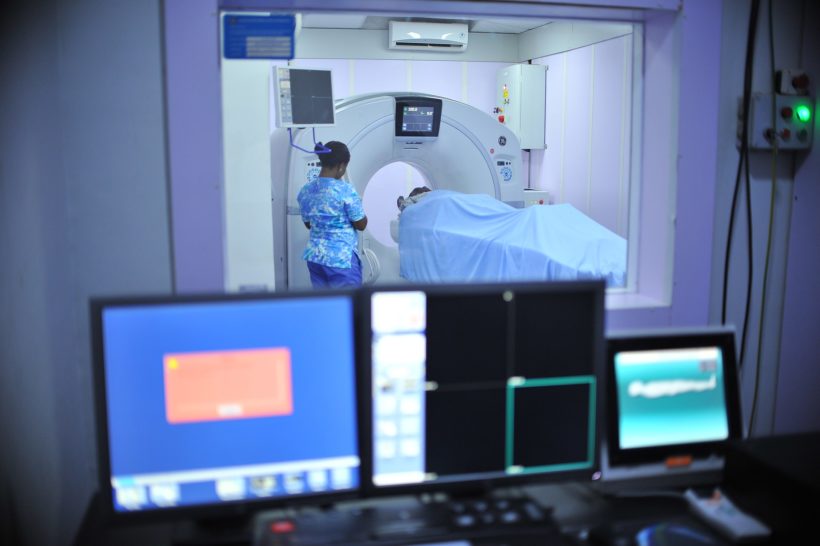A medical team accidentally registers the brain activity of a person during the period before and after their death.
By Carlos Sánchez
It is a day like any other at the hospital. The doctors are preparing to carry out a brainwave measurement test on an 87-year-old man who had had epileptic seizures after an accident. Little did they know that they were on the verge of an astonishing discovery.
During the EEG, the patient went into cardiac arrest and died. But the machines, with a cold disinterest in the unexpected, kept running and recorded his brain activity.
The evidence
According to the study published by the medical team in the journal Frontiers in Aging Neuroscience:
“After cardiac arrest, delta, beta and alpha powers were reduced, but a higher percentage of relative gamma power was observed (…) even after cessation of cerebral blood flow.” “Our data provide the first evidence of the dying human brain in a clinical setting (…) and argue that the human brain may possess the capacity to generate coordinated activity during the dying process”.
In an interview with the BBC, Dr Ajmal Zemmar, neurosurgeon (University of Louisville, USA) and co-author of the study, states:
“This is the first time in history that the activity of a human brain has been recorded from the state of alive to deceased (…) we found certain rhythmic patterns in the brain waves, which are what happens in the brains of human beings when we have recollections of memories, meditation, concentrate attention or in dreams (…) it happens before and after the heart has stopped beating.”
On a more subjective level, Dr Ajmal shares his thoughts: “It seems that this new phase of death is initiated when the person is about to die (…) this leads to the intriguing speculation that here we have the neurophysiological correlate to those near-death experiences (NDEs) that are repeatedly witnessed by people (…) who report having a flashback of their life”.
The Plan
Following the publication of the study, many press articles have announced the finding of the scientific basis for NDEs. Specifically, the “life flashes before you, like a movie” experience described by people who were clinically dead but survived. This conclusion could be true, but they focus the debate on whether or not the new medical discovery is hard evidence of such experiences.
What is astonishing is the fact in itself, fascinating without further evidence, that something happens in our brains after we die. We have a behavioural set-up for the dying process, even without a heartbeat.
When we are born, we come with numerous reflexes, which remain active for the first year of life: grasping with our hands, sucking with our mouths, tensing our neck and stretching out an arm if we are placed face down (so as not to drown), etc. And they all have a justification in our survival.
The question then arises: What use would a brain mechanism in the process of death and with a stopped heart be to Darwinian evolution? In that state we can no longer compete with our peers, like a lion of the savannah. And it is obvious that we are not going to reproduce, we are not for that sort of thing. Why, then, do we have an activity programmed in our minds, with the last shreds of energy, even afterwards clinical death? Could it be that the plan of evolution and life is different?
Because the dominant belief is telling us that here we come to compete among equals, to a continuous trampling with other human beings, to accumulate power, and that our genes are the ones that get the future. An inflated ego not only in life but for ever and ever. Moreover, we are surrounded by the behaviour of animal species ready to justify such a conclusion.
But a programme charged in our genetic code waits patiently, unhurriedly, for its time to come, just before it dies. Like a computer virus. Perhaps it is programmed to make it easier, during death, for us to see the essence of what our life was. Perhaps it wants to help us unveil something that our consciousness could only glimpse in our existence. Perhaps it is the genetic reflection of the phrase “real wisdom is in the depths of your consciousness as true love is in the depths of your heart. (Silo, “The Healing of Suffering”, 1969).
Other articles by the author:
The ear, our last connection before we die.
A study by the University of Vancouver shows that the ear is the last sense to be disconnected before death, even remaining active without the apparent consciousness of the sick person. This provides a scientific basis for spiritual currents and traditions that have been performing ceremonies or speaking into the ears of people on their deathbed for centuries.
We come from the confluence and cooperation of human species, not their competitiveness.
New archaeological findings dismantle hitherto accepted evolutionary theories, and reveal that we come from sustained hybridisation between different hominid species over tens of thousands of years.










